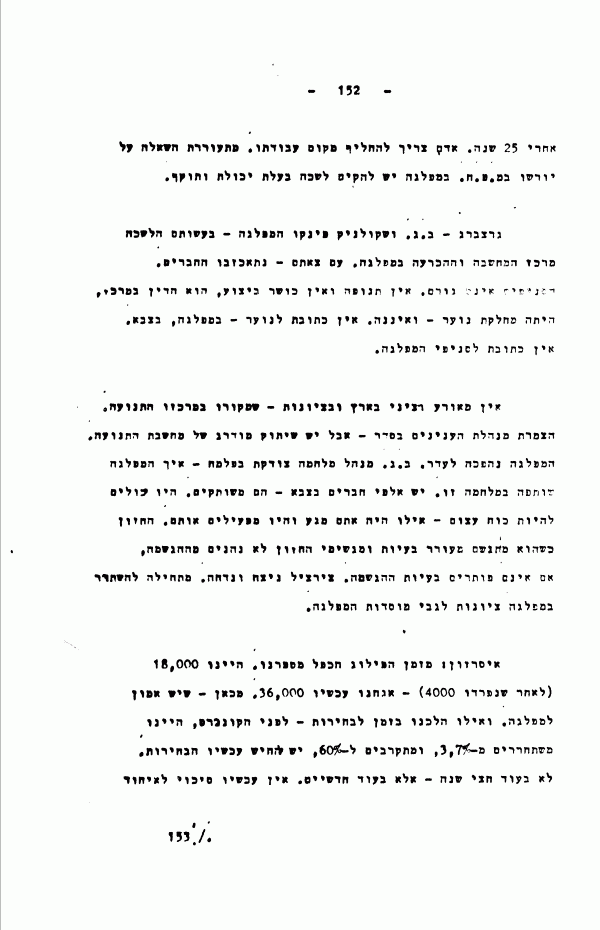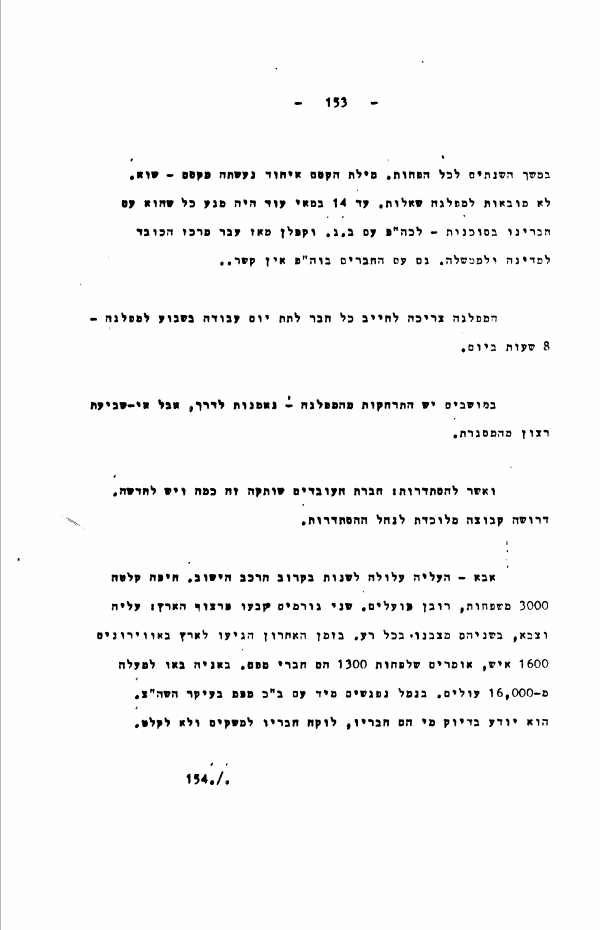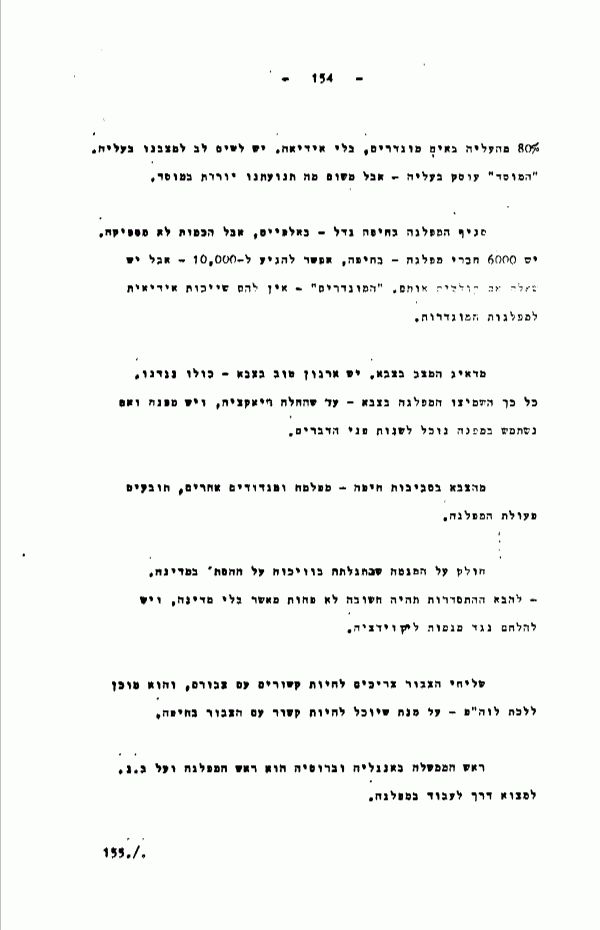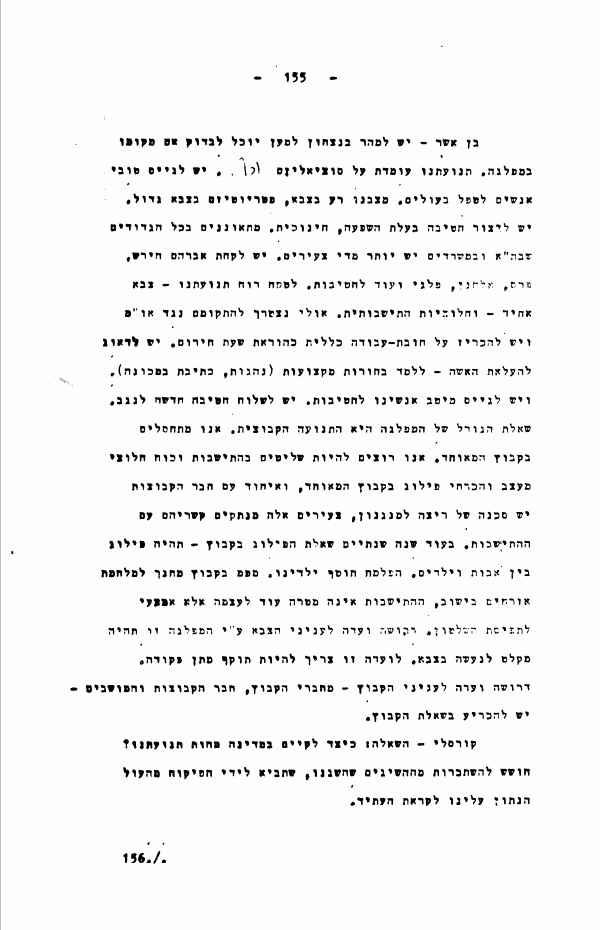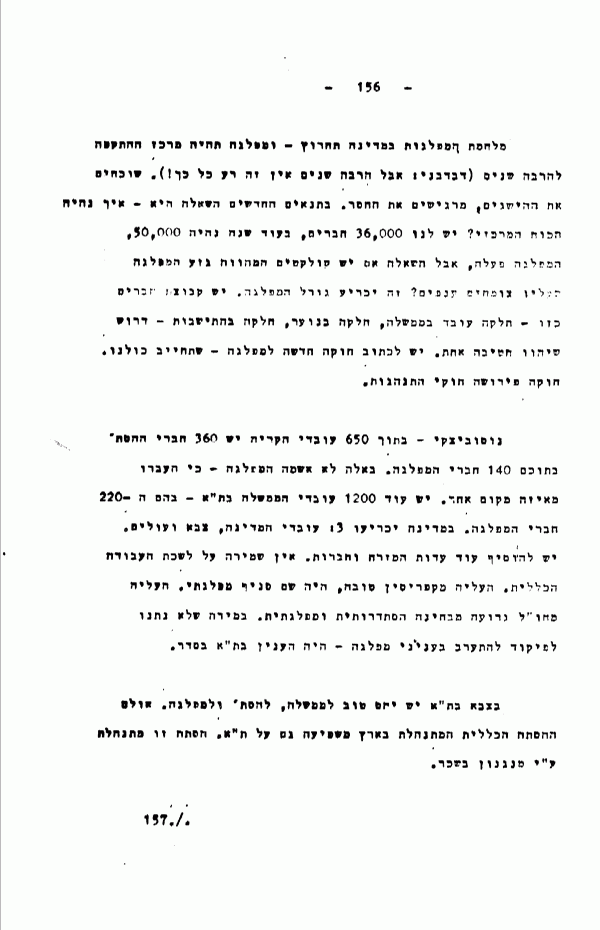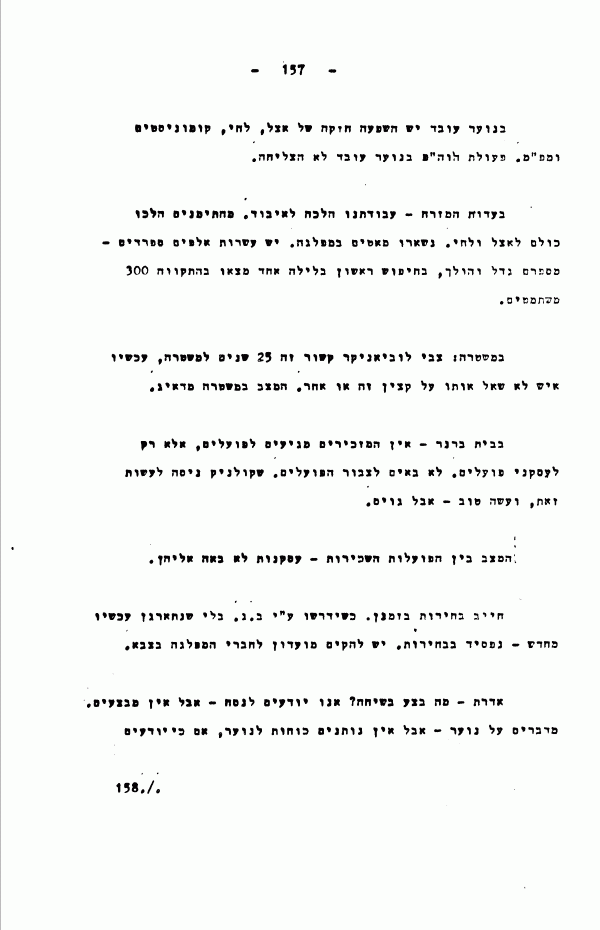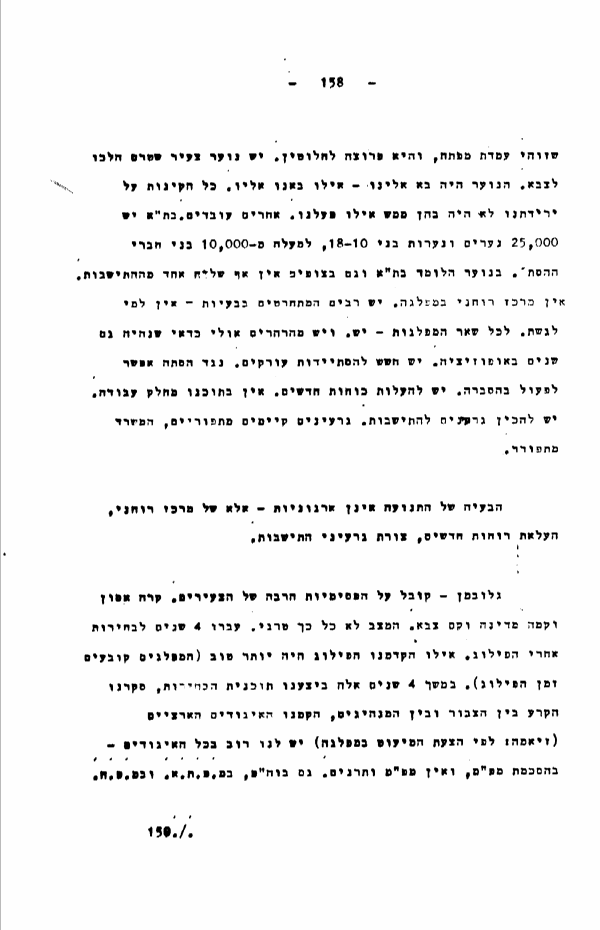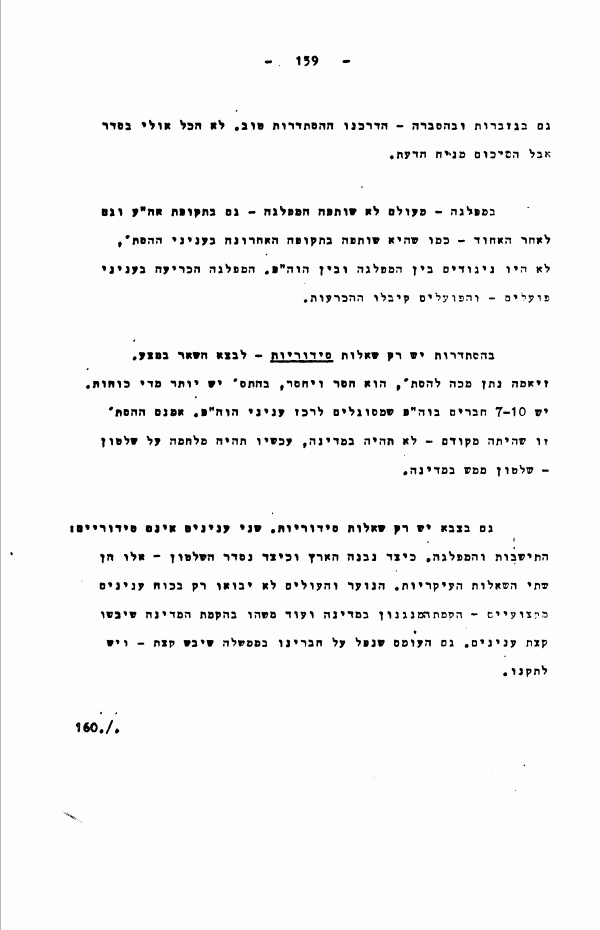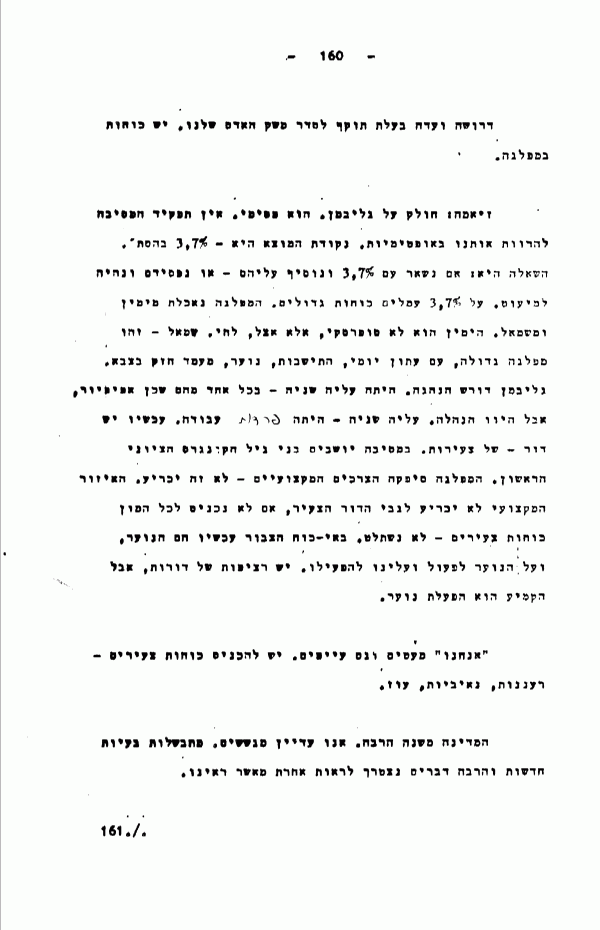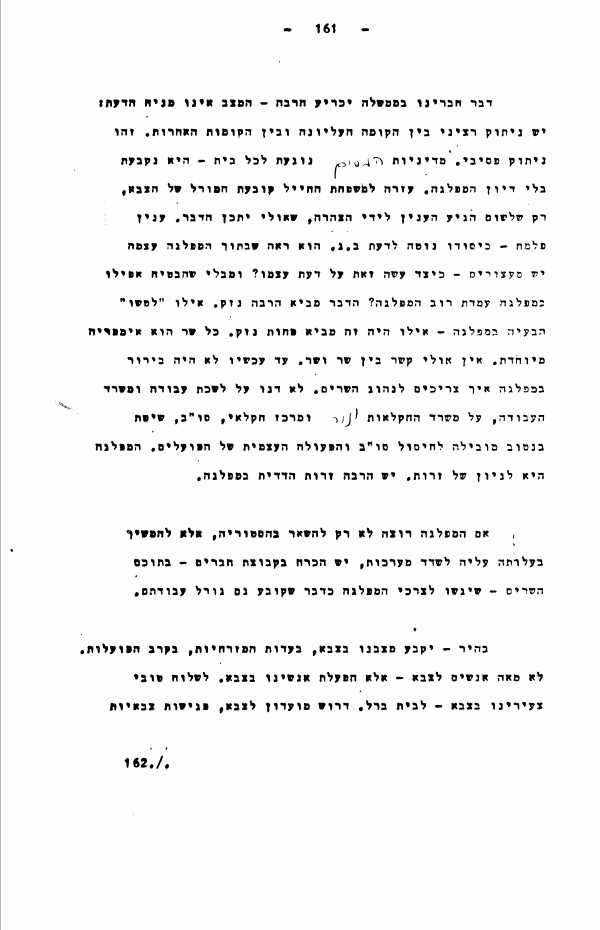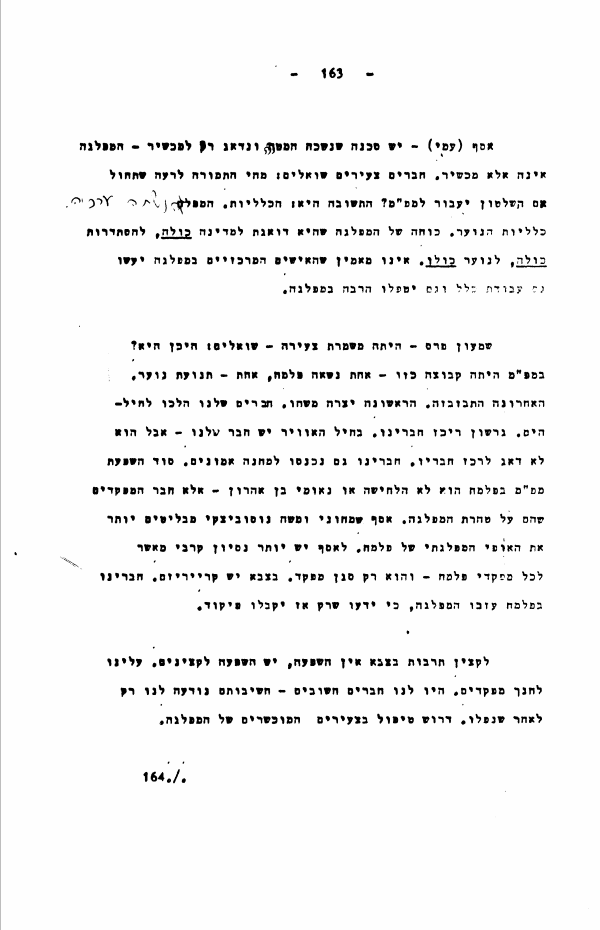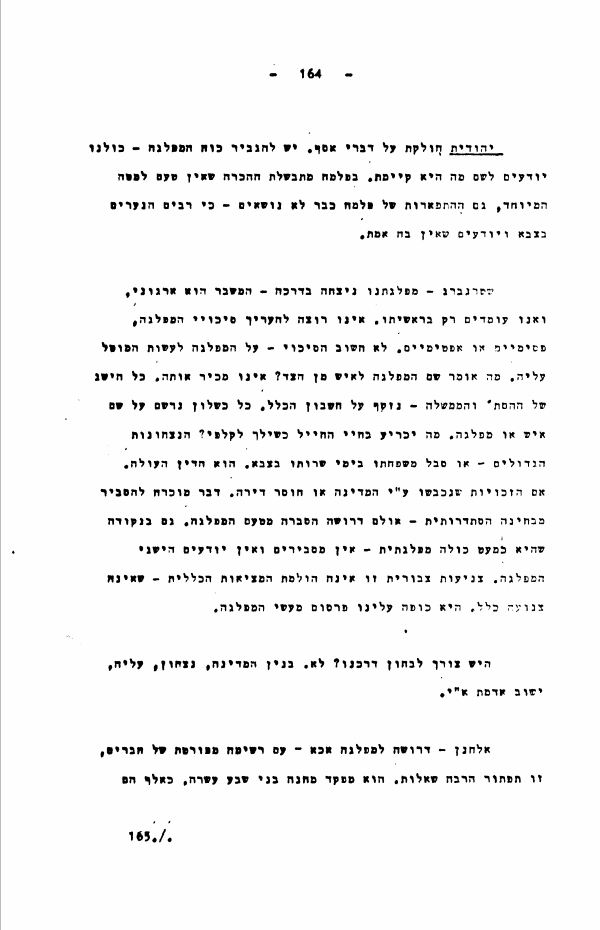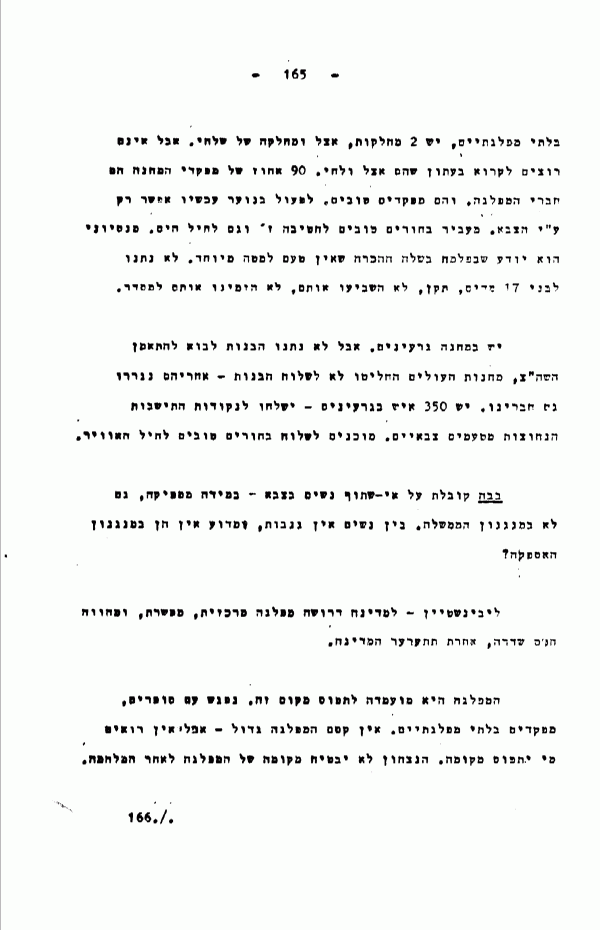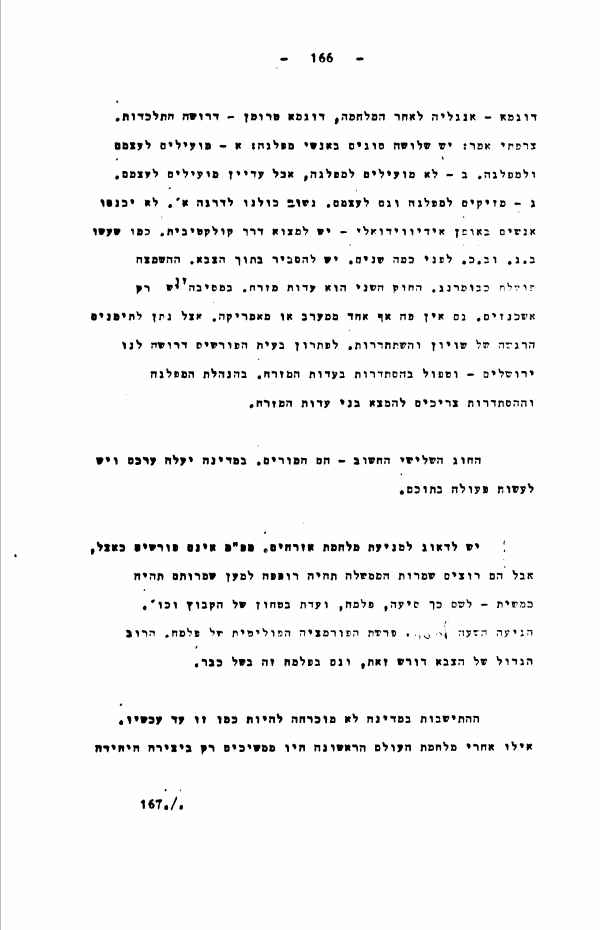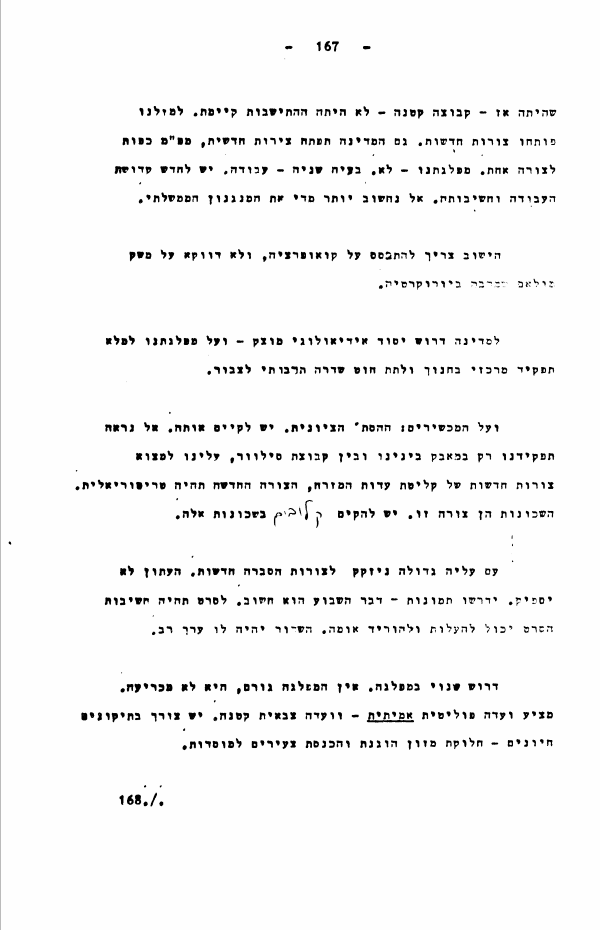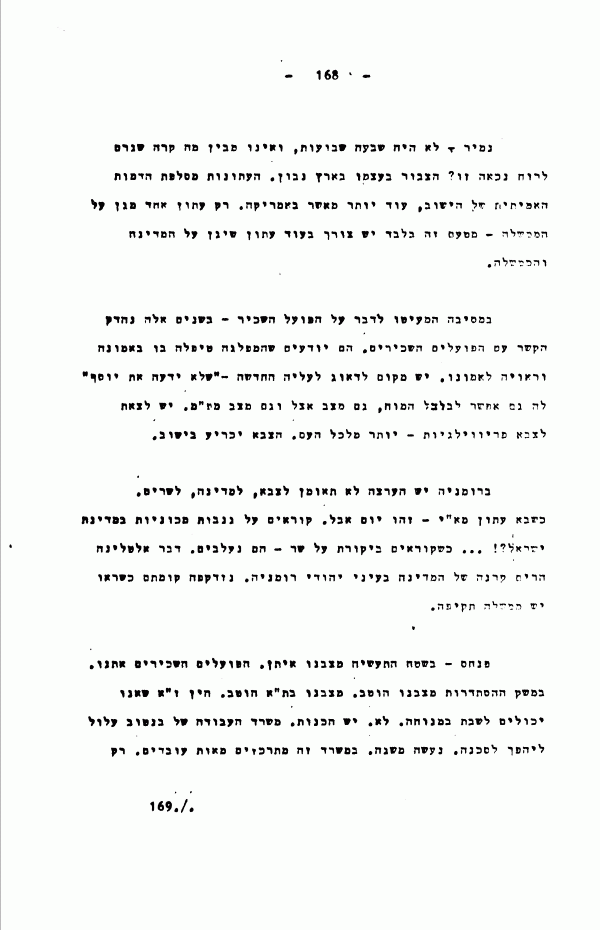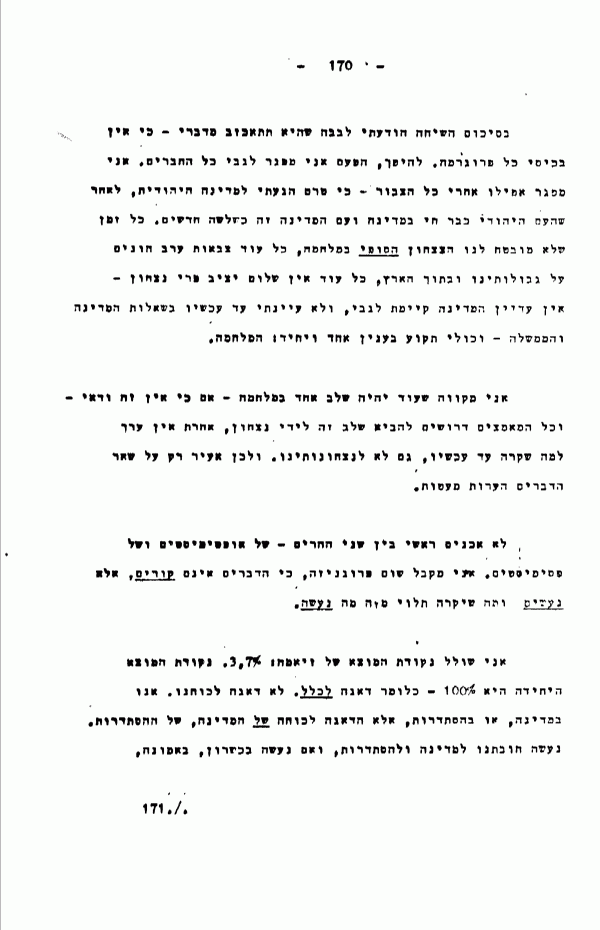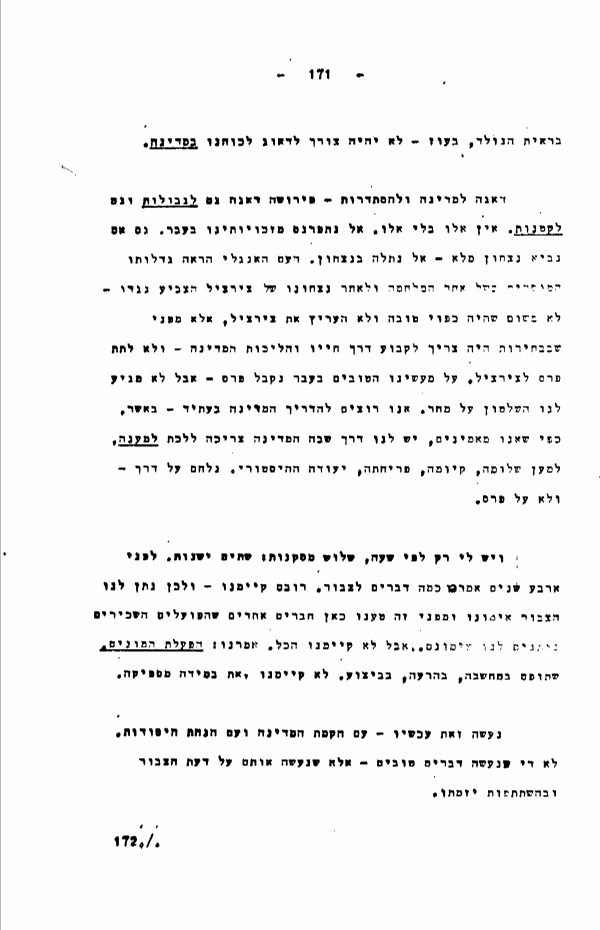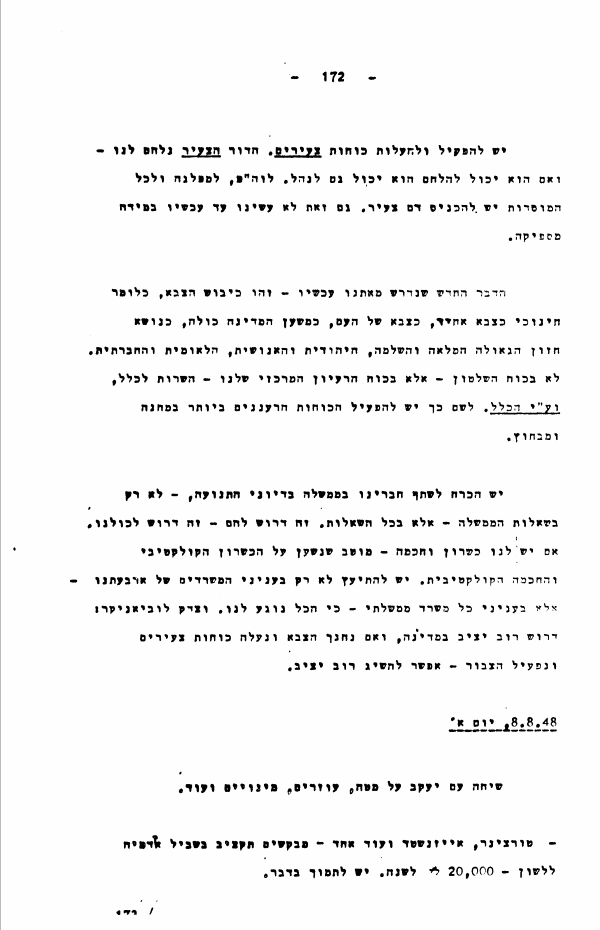1
of
People:
The use of the photograph is subject to the Copyright Law, 2007
06.08.1948
225439
Saturday, August 7, 1948 [A Young Mapai conference, convened on this day, opened with a statement by Ziama Aran: “The values of the party are rising – the value of the party is declining.” The conference included some twenty speakers, both long-time and young members. Complaints against the party were aired, as was its status in the Histadrut, the settlement movement, the army, and the Palmach, among others. Ben-Gurion participated in the conference, listened and recorded many members’ remarks in his diary, and upon conclusion delivered the following speech:] In my pocket I carry no program [platform]. On the contrary, this time I lag behind all the [other] members. I even lag behind the entire public – because I have yet to arrive in the Jewish state, even after the Jewish people has already been living in the state and with the state for some three months now. So long as we’re not assured of a final victory in the war, so long as Arab forces are stationed along our borders inside the country, so long as there’s no stable peace resulting from victory – the state doesn’t exist as far as I’m concerned, and I haven’t yet examined the questions of state and government – as I’m completely stuck on a single, solitary issue: the war. I hope that there will still be another phase of the war – although this is not certain – and all efforts are needed to bring this phase to victory, otherwise there is no value in what has happened so far, not even in our victories. And therefore I’ll make just a few comments on the other matters. I won’t insert my head between two mountains – of optimists and of pessimists. I don’t accept any prognosis, because things are not happening, but rather being done, and what is to happen depends on what we will do. I reject Ziama’s [Zalman Aran’s] starting point: 3.7% [Mapai’s absolute majority in the Histadrut, which seemed minuscule to Ziama]. The only starting point is 100% – that is, concern for the collective, not concern for our own power in the state, or in the Histadrut, but rather the concern [that we should feel] for the power of the state, of the Histadrut. We will carry out our duty to the state and to the Histadrut, and if we do so with skill, with faith, with foresight, with might – then there will be no need for concern over our power in the state. Concern for the state and the Histadrut – means concern for both the major issues and the minor issues. Neither of those exist without the others. We mustn’t count on our past gains. Even if we achieve a full victory – we mustn’t rest on this victory. The English people demonstrated its moral excellence after the war and after Churchill’s victories when it voted against him, not because it was ungrateful or didn’t admire Churchill, but because the elections were meant to determine the state’s conduct and way of life – rather than to award Churchill a prize. For our good deeds in the past may we be awarded a prize – but not the entitlement to rule over tomorrow. We want to guide the state in the future – in that, as we see it, we have a path that the state should follow for its own sake, for its well-being, its existence, its prosperity, its historical destiny. We will fight for a path – not for a prize. As of now I have only three conclusions: two are old ones. Four years ago we made a few statements to the public [a reference to the Mapai position in the Histadrut Executive Committee and the Histadrut Council in February-March 1944, against the background of Si’ah Bet (Faction B) seceding from Mapai]. Most of them we upheld – and therefore the public put its faith in us, and for this reason a few members here claimed that wage workers put their faith in us. But we haven’t upheld all of them. We said: mobilization of the masses, their inclusion in the thought process, in decision-making, in implementation. We have not satisfactorily upheld this. We will do so now – with the establishment of the state and the laying of foundations. It is not enough that we do good deeds – for we must do them in accordance with public opinion and with its initiative. Young forces must be mobilized and raised up. The young generation is waging war for us – and if it can wage war then it can administrate. Young blood must be introduced into the Executive Committee, the party, and all the institutions. This, too, is something we have not yet done satisfactorily. The new [third] thing required of us now – is conquest of the army, that is, educating it as a unified army, the people’ army, underpinning the entire state, bearer of the vision of complete and total, Jewish and human, national and social redemption. Not by power of government – but by power of our core idea – in service of the collective, and by the collective. Towards this end it’s necessary to mobilize the freshest forces in the camp and outside of it. It is necessary to include our colleagues from the government in the movement’s debates – not only in governmental questions, but in all questions. This is necessary for them – [and] necessary for all of us. Even if we possess skill and intelligence – it’s best that we rely on the collective skill and the collective intelligence. We should consult not only on matters involving the ministries under the four of us [the four Mapai ministers in government – Ben-Gurion, Shertok, Kaplan, Remez] – but on matters involving every government ministry – because all of it concerns us. Lubianker [Pinhas Lavon] was right: the state needs a stable majority. And if we educate the army and lift up the young forces and mobilize the public – then it will be possible to achieve a stable majority.






